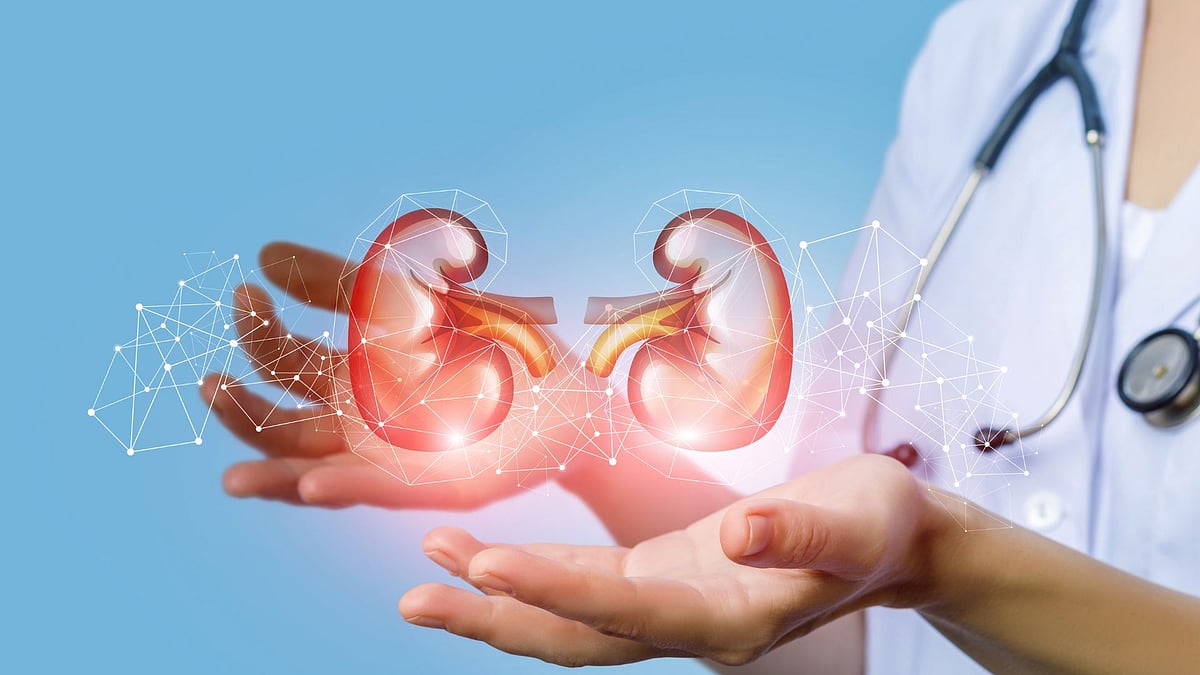Hidden Dangers: How Everyday Habits Sabotage Your Kidneys
Simple lifestyle tweaks can shield your kidneys from silent, long-term damage caused by salt, sugar, and daily habits

Our kidneys are hardworking organs, quietly performing the critical task of filtering waste, balancing fluids, and regulating blood pressure. But many of us unknowingly damage them through daily habits—particularly with what’s on our plates. Salt and sugar, two of the most common ingredients in our diets, can silently sabotage kidney health over time. Here's how—and what you can do about it.
Understanding role of kidneys
Your kidneys filter around 50 gallons of blood daily to remove waste and excess fluids. They also regulate electrolyte levels, control blood pressure through hormone production, and help make red blood cells. Because they perform these functions silently and without causing symptoms until late-stage disease, damage often goes unnoticed—earning kidney disease the nickname “silent killer.”
Slow poison
While a pinch of salt adds flavor, most people consume far more sodium than the recommended daily intake of 2,300 mg (roughly one teaspoon). High sodium intake forces your kidneys to work harder to excrete the excess, eventually leading to:
High blood pressure: A major risk factor for kidney disease.
Fluid retention: Causing swelling in legs, hands, and around the eyes.
Calcium loss in urine: Which may contribute to kidney stones.
Sneaky sources of sodium include packaged foods, breads, chips, instant noodles, canned soups, and processed meats. Even seemingly healthy items like breakfast cereals and salad dressings may be loaded with salt.
What you can do
Read labels and aim for "low sodium" options.
Cook at home using herbs and spices instead of salt.
Rinse canned foods before use to wash off excess sodium.
Sweet but sinister
Excessive sugar, especially from sugary drinks, desserts, and processed snacks, can lead to obesity and type 2 diabetes—two leading causes of chronic kidney disease (CKD). Over time, high blood sugar levels damage the blood vessels in your kidneys, impairing their filtering ability.
Fructose, a type of sugar found in soft drinks and sweets, may also directly affect kidney function by increasing uric acid levels, which can lead to hypertension and kidney stones.
What You Can Do
Swap sugary drinks for water, herbal teas, or infused water.
Choose whole fruits over juices or fruit-flavored products.
Limit processed snacks and opt for homemade alternatives.
An overlooked culprit
Skipping water or relying solely on caffeinated beverages can strain your kidneys. Dehydration reduces the kidneys’ ability to flush out toxins and increases the risk of urinary tract infections and kidney stones.
What You Can Do
Drink at least 6–8 glasses of water daily, more if you're physically active.
Carry a water bottle to remind yourself to stay hydrated.
Watch for signs of dehydration like dark urine, fatigue, and dry mouth.
Overuse of painkillers
Frequent use of over-the-counter medications like ibuprofen, naproxen, or even certain antibiotics can be harmful to the kidneys. Long-term use may cause chronic interstitial nephritis—a type of kidney inflammation.
What You Can Do
Use painkillers only when necessary and in recommended doses.
Avoid combining multiple medications without medical advice.
Consult your doctor if you need long-term pain management.
Ignoring high blood pressure and diabetes
Poorly managed diabetes and hypertension are the top two causes of kidney failure. Both conditions damage the blood vessels, including those in your kidneys, reducing their ability to function efficiently.
What You Can Do
Monitor your blood sugar and blood pressure regularly.
Stick to prescribed medications and lifestyle changes.
Schedule annual kidney function tests if you’re at risk.
Double trouble
Smoking slows blood flow to the kidneys and worsens existing kidney problems. It also increases the risk of high blood pressure and kidney cancer. Excessive alcohol intake can lead to dehydration, high blood pressure, and liver disease, which indirectly affects kidney function.
What You Can Do
Seek help to quit smoking through therapy or support groups.
Limit alcohol to moderate levels—one drink per day for women, two for men.
Replace these habits with healthier stress relievers like walking or meditation.
Prevention starts with awareness
Your daily habits have a long-term impact on kidney health. The good news? Simple dietary and lifestyle changes can protect your kidneys and prevent irreversible damage. By cutting down on salt and sugar, staying hydrated, avoiding unnecessary medications, and managing chronic conditions, you’re not just caring for your kidneys—you’re investing in your overall well-being.
Kidney disease may be silent, but your choices don’t have to be.
(Dr Nikhil Bhasin, consultant nephrologist and renal transplant physician, Wockhardt Hospitals, Mumbai Central)
Published on: Sunday, September 21, 2025, 12:00 AM ISTRECENT STORIES
-
-
-
-
-